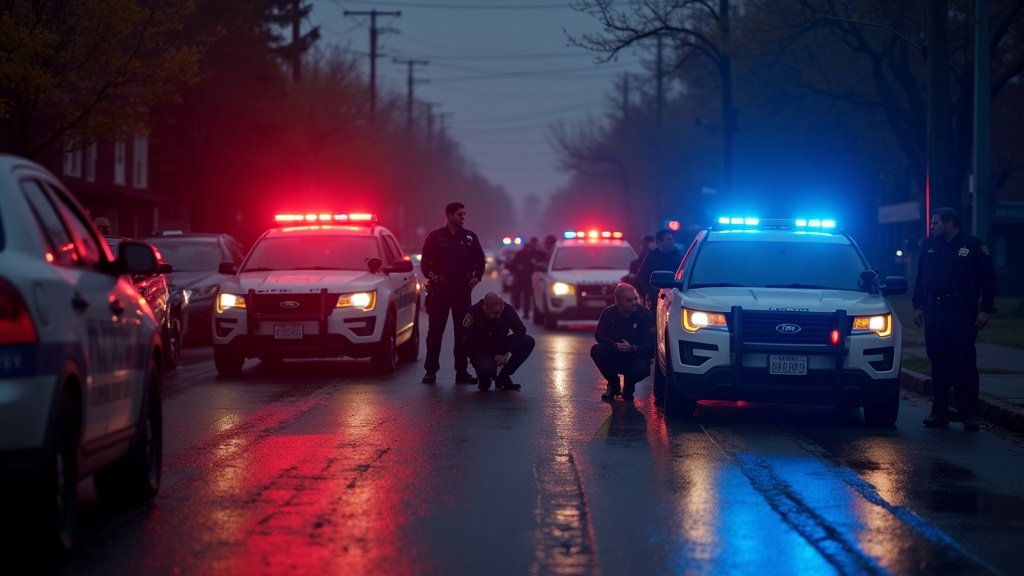Oregon Gas Tax Faces Potential Ballot Battle Over New Transportation Funding Law
Salem, OR – Opponents of Oregon’s recently enacted transportation funding bill are poised to launch a significant signature-gathering effort, aiming to put the controversial measure before voters in the November 2026 general election. Governor Tina Kotek signed the bill into law on Friday, November 7, 2025, following a period of significant legislative debate and a delay that opponents argue intentionally shortened the window for their referendum campaign. The push seeks to overturn key provisions of the legislation, which is set to raise billions of dollars for the state’s infrastructure, making the Oregon gas tax a central point of contention.
The Transportation Funding Package: What’s Included in the Oregon Gas Tax Law?
The bill, primarily identified as House Bill 3991, is designed to generate approximately $4.3 billion over the next decade to address Oregon’s pressing infrastructure needs, including road maintenance and operations, and to prevent significant layoffs at the Oregon Department of Transportation (ODOT). Proponents argue that without this new revenue, including the increase to the Oregon gas tax, the state faced a critical funding crisis, risking hundreds of job cuts and a further decline in road conditions. This transportation funding law is a critical piece of legislation.
Key components of the legislation include:
* A six-cent increase to the state’s gas tax, raising it from 40 cents to 46 cents per gallon, effective December 31, 2025. This Oregon gas tax increase is a major focus.
* A substantial hike in vehicle registration fees, nearly doubling them from $43 to $85 for passenger vehicles, alongside increases for other vehicle types. These vehicle registration fees Oregon are also part of the debate.
* An increase in vehicle title fees.
* A temporary doubling of the employee payroll tax dedicated to public transit, from 0.1% to 0.2%, which is slated to sunset in 2028.
Supporters, including Governor Kotek, emphasize that the bill is a crucial step towards ensuring the state’s transportation system remains functional and safe, while also investing in necessary upgrades. The legislation passed the Oregon Legislature on party-line votes after a special session, becoming a significant transportation funding law.
Referendum Campaign Takes Shape to Challenge the Oregon Gas Tax
Led by State Representative Ed Diehl (R-Stayton), Senator Bruce Starr (R-Dundee), and Jason Williams of the Taxpayer Association of Oregon, the “No Tax Oregon” referendum effort is now mobilizing to collect signatures. Paperwork to initiate the process, which could impact the Oregon gas tax, was submitted to the Oregon Secretary of State on Monday, November 10, 2025.
Under Oregon law, a referendum requires proponents to collect signatures equal to four percent of the total votes cast in the most recent gubernatorial election. For the current effort, this translates to 78,116 valid signatures. Petitioners have a strict 90-day window to gather these signatures for the Oregon signature drive, with the deadline set for December 30, 2025.
“We feel pretty confident that by the end of this week, we will be good to go,” Diehl stated, indicating the campaign is preparing to actively solicit signatures as soon as the necessary forms are officially approved for the Oregon ballot measure.
Political Maneuvering and the Clock on the Oregon Gas Tax
The timing of Governor Kotek’s signature has become a focal point of contention, especially regarding the Oregon gas tax. She signed the bill on November 7, after holding it for nearly the full 30-day window she has to act on legislation. This delay, opponents argue, was a strategic move to limit the time available for signature collection, a tactic that has drawn sharp criticism from Republican lawmakers and the Oregon taxpayer association.
Senate Republican Leader Bruce Starr accused the governor of “bleeding the clock” on the referendum effort challenging the transportation funding law. Governor Kotek, however, has urged Oregonians to consider the consequences of rejecting the funding, suggesting it would impair the state’s ability to maintain basic road operations and fund essential Oregon infrastructure funding.
While the bill passed with Democratic support, some within the party have acknowledged the contentious nature of the process and the public’s concerns about the Oregon gas tax. Letters from Democratic Senators Janeen Sollman and Jeff Golden urged Kotek to sign the bill, noting that the delay was widely interpreted as an effort to hobble the referendum process, which runs counter to core Democratic values.
The Stakes for Oregon Voters on the Oregon Gas Tax
If the referendum organizers succeed in gathering the required signatures by December 30th, the new taxes and fees approved in HB 3991, including the Oregon gas tax, will be suspended. The ultimate decision on whether to approve or reject these measures would then fall to Oregon voters on the November 2026 ballot as an Oregon ballot measure. Should the signature threshold not be met, the tax and fee increases will take effect as scheduled, beginning December 31, 2025, including the increased Oregon gas tax.
This upcoming signature drive represents a significant test of public sentiment regarding transportation funding in Oregon and the proposed Oregon gas tax. The debate highlights a growing tension between the state’s infrastructure needs and the financial burdens on its residents, a narrative that is likely to play out prominently in the news and at the ballot box, making the Oregon gas tax a pivotal issue.




